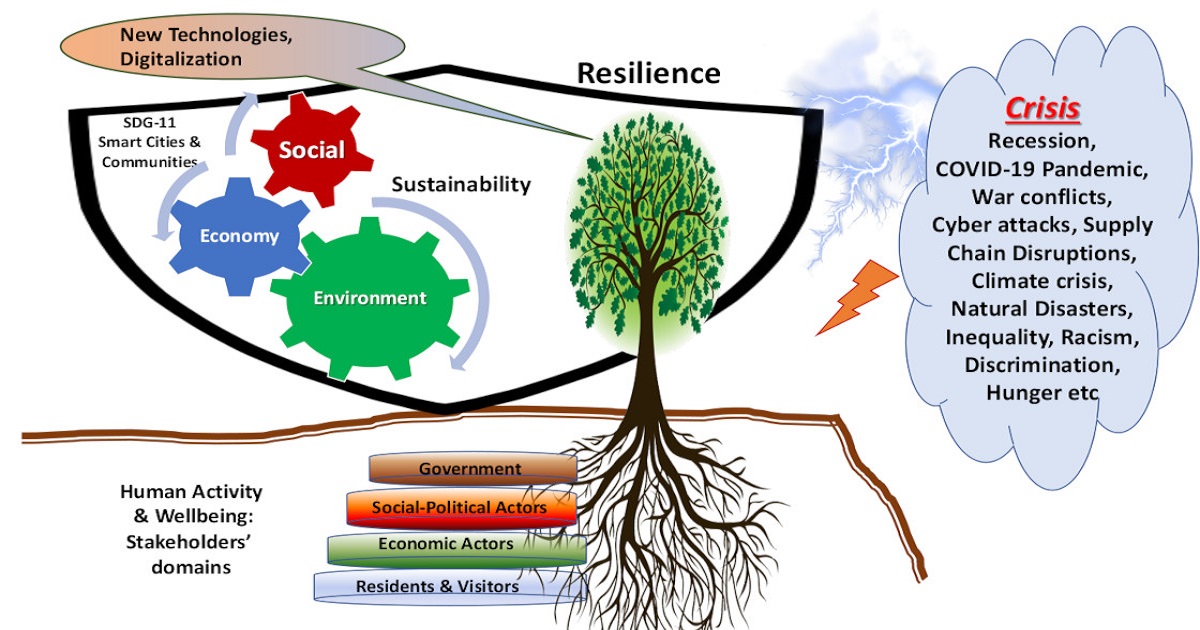Building Resilience in the Supply Chain in the Digital Era: The Challenges for Social, Environmental and Economic Sustainability
A special issue of Sustainability (ISSN 2071-1050). This special issue belongs to the section "Sustainable Management".
Deadline for manuscript submissions: closed (31 May 2024) | Viewed by 74701

Special Issue Editors
Interests: supply chain management; sustainability; crisis management; innovation management
Interests: supply chain & logistics; urban freight transport; sustainable agrifood chain; distribution channels
Special Issues, Collections and Topics in MDPI journals
Special Issue Information
Dear Colleagues,
The Sustainable Development Goals (SDGs) are a universal call from the United Nations to provide a shared blueprint for sustainability, peace and prosperity for people and the planet, now and into the future. The 11th Goal—sustainable cities and communities—aims to make cities and human settlements inclusive, safe, resilient and sustainable. In the digital era, coupled with the pandemic crisis, advancing social sustainability is further related to promoting human resource development, quality of life and employee wellbeing. Circular and biobased economic models, as well as an industrial symbiosis that improves across industry resource/energy efficiency and eco-innovations, is needed to move towards an environmentally and economically sustainable transition. To facilitate this transition to sustainable human communities, synergies and partnerships are needed across multiple stakeholders (Trivellas et al., 2021), and supply chains have a critical role to play (Reklitis et al., 2021). Furthermore, with new emerging technologies such as e-business, blockchain and cryptocurrency leveraging business communication, digital marketing, crowdsourcing, user engagement and financial management, there is a move towards the digital transformation of community activities.
We invite all academicians and professionals to provide their point of view on this emerging issue through research articles. The goal of this Special Issue is to analyze the actions of all stakeholders and highlight their role focusing on social, environmental and economic sustainability of communities, as well as communities’ connectivity in the digital era.
Reading List:
- Reklitis, P.; Sakas, D.; Trivellas, P.; Tsoulfas, G. Performance Implications of Aligning Supply Chain Practices with Competitive Advantage: Empirical Evidence from the Agri-Food Sector. Sustainability 2021, 13, 8734.
- Manikas, I.; Malindretos, G.; Moschuris, S. A Community-Based Agro-Food Hub Model for Sustainable Farming. Sustainability 2019, 11, 1017. https://doi.org/10.3390/su11041017
- Trivellas, P.; Malindretos, G.; Reklitis, P. Implications of Green Logistics Management on Sustainable Business and Supply Chain Performance: Evidence from a Survey in the Greek Agri-Food Sector. Sustainability 2020, 12, 10515.
- Sakas, D.P.; Kamperos, I.D.G.; Reklitis, P. Estimating Risk Perception Effects on Courier Companies’ Online Customer Behavior during a Crisis, Using Crowdsourced Data. Sustainability 2021, 13, 12725.
- Wang, Y.; Iqbal, U.; Gong, Y. The Performance of Resilient Supply Chain Sustainability in COVID-19 by Sourcing Technological Integration. Sustainability 2021, 13, 6151. https://doi.org/10.3390/su13116151
- Najjar, M.; Small, M.H.; M. Yasin, M. Social Sustainability Strategy across the Supply Chain: A Conceptual Approach from the Organisational Perspective. Sustainability 2020, 12, 10438.
- Trivellas, P.; Anastasopoulou, A.; Malindretos, G.; Reklitis, P.; Sakas, D.P.; A place-based analysis of stakeholders' advancing sustainability in remote and isolated communities: The case of North Aegean Islands, IOP Conference Series: Earth and Environmental Science, 2021, 899(1), 012044
We look forward to receiving your contributions.
Prof. Dr. Panagiotis Reklitis
Prof. Dr. George Malindretos
Guest Editors
Manuscript Submission Information
Manuscripts should be submitted online at www.mdpi.com by registering and logging in to this website. Once you are registered, click here to go to the submission form. Manuscripts can be submitted until the deadline. All submissions that pass pre-check are peer-reviewed. Accepted papers will be published continuously in the journal (as soon as accepted) and will be listed together on the special issue website. Research articles, review articles as well as short communications are invited. For planned papers, a title and short abstract (about 250 words) can be sent to the Editorial Office for assessment.
Submitted manuscripts should not have been published previously, nor be under consideration for publication elsewhere (except conference proceedings papers). All manuscripts are thoroughly refereed through a single-blind peer-review process. A guide for authors and other relevant information for submission of manuscripts is available on the Instructions for Authors page. Sustainability is an international peer-reviewed open access semimonthly journal published by MDPI.
Please visit the Instructions for Authors page before submitting a manuscript. The Article Processing Charge (APC) for publication in this open access journal is 2400 CHF (Swiss Francs). Submitted papers should be well formatted and use good English. Authors may use MDPI's English editing service prior to publication or during author revisions.
Keywords
- social sustainability
- sustainable supply chains
- social economy and cooperative entrepreneurship for sustainable development
- digitalization and pandemic (COVID-19) crisis
- business communication, digital marketing and crowdsourcing
- user engagement and cryptocurrency
- business intelligence and participative decision support systems
- green logistics and transport
- sustainable communities
- resilience of remote and isolated communities
- multi-stakeholder and multi-criteria decision making
- creative resilience and crisis management
- human wellbeing and quality of life
- work–life balance
- circular economy and industrial ecosystems
- economic sustainability, accounting and financial management
- consumer behavior in the COVID-19 era
- city logistics and urban freight transport
Benefits of Publishing in a Special Issue
- Ease of navigation: Grouping papers by topic helps scholars navigate broad scope journals more efficiently.
- Greater discoverability: Special Issues support the reach and impact of scientific research. Articles in Special Issues are more discoverable and cited more frequently.
- Expansion of research network: Special Issues facilitate connections among authors, fostering scientific collaborations.
- External promotion: Articles in Special Issues are often promoted through the journal's social media, increasing their visibility.
- Reprint: MDPI Books provides the opportunity to republish successful Special Issues in book format, both online and in print.
Further information on MDPI's Special Issue policies can be found here.






